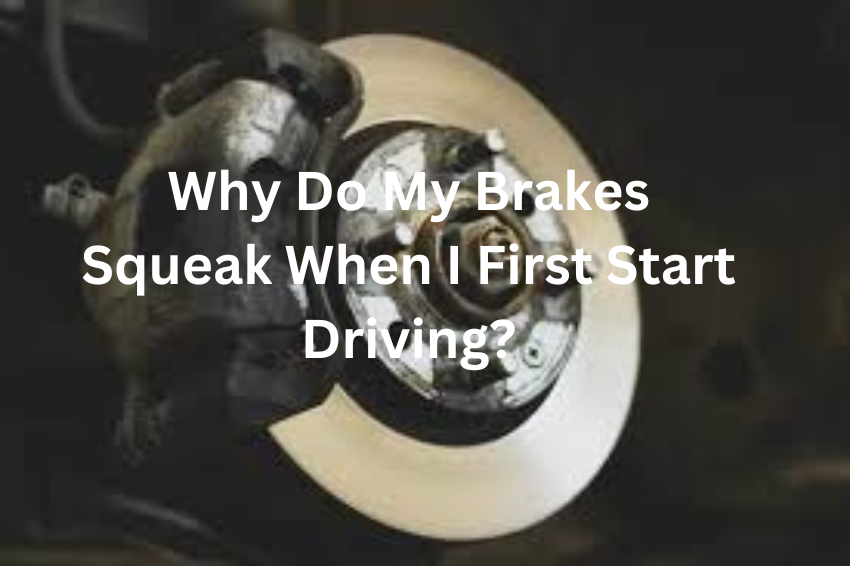Are you hearing your brakes squeak, especially when you first start driving?
This guide will explain the two main reasons why your brakes might squeak in the morning, and what you can do about it.
Allow me to share with you a quick summary of this guide:
“The two main reasons why your brakes squeak when you first drive are moisture and dust. Overnight moisture can cause rust on your brake rotors, leading to a temporary squeal until it wears off. Similarly, dust buildup from the road can also create squeaking noises. While squeaking brakes aren’t naturally dangerous, loud or constant squeaking, grinding noises, or changes in brake pedal feel can indicate worn brake pads or other problems. In these cases, consider a mechanic visit. If you’re unsure or uncomfortable checking your brakes yourself, a professional can diagnose the cause and recommend any repairs needed for safe and quiet braking.”
Why Do My Brakes Squeak Only When I First Start Driving?
Here are the two main reasons why your brakes might squeak when you first drive, and what you can do about it:
1. Moisture Buildup:
Overnight exposure to rain, humidity, or even dew can cause a thin layer of rust to form on your brake rotors.
These are the discs that the brake pads clamp down on to slow your car.
When you first apply the brakes in the morning, this rust can be scraped off by the brake pads, creating a high-pitched squealing sound.
Thankfully, this is usually temporary.
As you drive and use your brakes more, the rust wears off, and the squeaking should disappear.
2. Dust And Debris:
Over time, dust and debris from the road can accumulate on your brake pads and rotors.
This buildup can also cause squeaking noises, especially when you first start driving after your car has been sitting for a while.
Similar to the rust scenario, applying the brakes can help dislodge some of this dust, reducing the noise.
Are Squeaky Brakes Dangerous?
The screeching sound of your brakes can be alarming, but in most cases, squeaky brakes are not necessarily dangerous.
Often, squeaking brakes are caused by temporary factors like moisture buildup or dust accumulation on the brake pads and rotors (as mentioned in the previous section).
These conditions typically cause a high-pitched squeal that disappears after a few minutes of driving when the brakes warm up and clear the surface.
Even with some squeaking, your brakes can still function effectively in stopping your car.
The friction material in your brake pads is designed to create friction for slowing down, and squeaking doesn’t necessarily affect this ability.
However, If the squeaking is loud and doesn’t go away after a few minutes of driving, it could be a sign of worn brake pads or other issues.
Also, a grinding noise along with squeaking is a cause for concern.
This could indicate that the metal backing of your brake pads is making contact with the rotors, which can damage both components.
Should I Take My Car To A Mechanic For Squeaky Brakes?
Here’s a guide to help you decide when to get your brakes checked by a professional:
Does the squeaking happen only for the first few moments of driving, or is it constant?
Is it a high-pitched squeal or a grinding noise?
As mentioned earlier, temporary squeaking upon initial braking is often due to moisture or dust and usually disappears quickly.
However, loud or persistent squeaking, especially if it gets worse over time, could indicate worn brake pads or other problems.
Does your brake pedal feel soft, spongy, or pulsate when braking?
These changes in how your brakes feel can be signs of a more serious issue and warrant a visit to a mechanic.
If you’re not comfortable inspecting your brakes yourself, or if the squeaking is accompanied by other concerning symptoms, it’s always best to err on the side of caution and have a qualified mechanic take a look.
